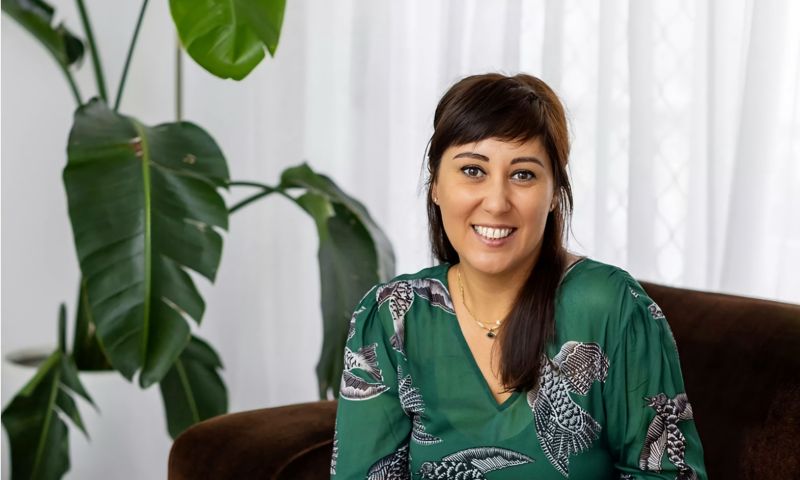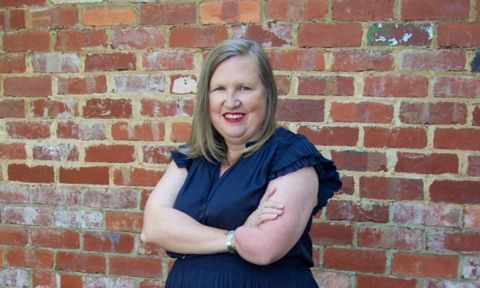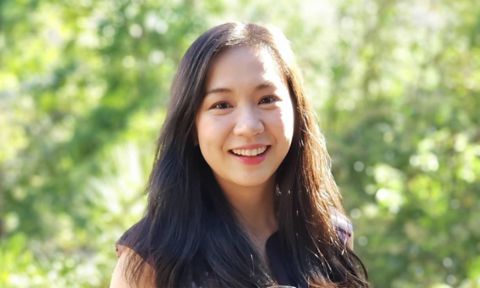Into the deep end
When she graduated from RMIT with a Bachelor of Social Science (Youth Work), which is now the Bachelor of Youth Work and Youth Studies, Connie was ready to tackle some big problems in the community.
“I always just wanted to work in the field of helping people and working with young people,” she said.
“I was on my local council’s youth committee, so I always had an interest in what young people needed.
“And I went straight into the deep end. I was just so hungry to get into the industry. I delved straight into a role in child protection and straight into a government role.”
Connie spent almost three years at the Department of Human Services, first as a child protection officer then as a prison liaison officer. It was confronting work, but her experiences kept her challenged and inspired.
“I remember being a very, very young child protection worker and going into court at the age of 23 or 24 to advocate on behalf of children,” she said.
“I didn’t necessarily have the answers, but at that age I was really curious to see how the services ran to see what the needs were and to get in there and help where I could.
“I was never going to go into the cutesy stuff, I always wanted to get in and do the work.”
Connie’s energy and passion led her to management roles within the social work sector. She became a coordinator at Workforce Plus where she helped people transition back into the workforce after recovering from mental illness.
Then came a role with community support organisation Melbourne City Mission.
“I was a team leader for a drop-in centre based in Braybrook and back then it was among the top three most disadvantaged regions for young people in the state,” Connie recalled.
“We had a high youth crime rate, so we did a lot of work with the local police force. It was predominantly young African children and we assisted them with access to computers and helped with all sorts of services like writing résumés and grant applications.”
Sudden tragedy turns career in new direction
In 2017, Connie’s former partner Jesse Bird, 32, took his own life. He was an Australian veteran who served in Afghanistan and since returning home had been diagnosed with PTSD. His death came just weeks after he lost a claim he had been pursuing for two years with the Department of Veteran Affairs for permanent impairment.
Connie was devastated. She turned her grief into action by advocating for Jesse and veterans like him.
“You don’t realise how powerful a mixture of anger, grief and just passion for doing what is right can be,” she said.
“It’s unstoppable. I’m not saying that’s a healthy thing, but at that time it was my driving force.
“I’ve always been driven by an individual’s needs to create any reform, whether it’s within an organisation or a community, whether it’s applying for a tender or $200 to put some food in someone’s fridge tonight.
“What fuelled me was that it was personal now and that was important for me to make sure that there was not only closure for myself, but I realised there were tens of thousands of other Connies and Jesses to have their voices heard.
“I had nothing to lose because I’d lost everything.”
Connie became involved in the 2021 Royal Commission into Defence and Veteran Suicide, and later in her role as a lived experience consultant, she also worked on the Royal Commission into Victoria’s Mental Health System.
A foundation for new career paths
Connie’s efforts in social justice, mental health and advocacy for veterans earned her an OAM this year.
She said the honour was humbling.
“It is important to note that validation for me has never come from my awards,” she said.
“It has always come from inclusive communication, a cultural shift and co-design with lived experience at the centre of decision making.”
Throughout her career, Connie has seen how politics impacts people and the support programs they rely on. Combined with her experiences at RMIT, it motivated her to pursue a career in politics.
“The politics element I did within my studies 20 years ago started to unfold and I started this newfound interest in politics, so that’s where I’m headed,” she said.
“Twenty years ago, I didn’t realise that advocacy could create such change. I don’t think I saw there was access for me to be able to create any federal government reform.
“I knew about it but didn’t think it was in reach for me to have a say and I think moving forward to where we are now it’s only natural that it’s the next step for me.”
If you or someone you know needs mental health support, RMIT offers a range of services such as counselling for staff and students. Anyone needing more urgent support can reach out to our emergency and crisis support services.
Lifeline: 13 11 14 (24/7)
Suicide Callback Service: 1300 659 467 (24/7)
Beyond Blue: 1300 22 4636 (24/7)
Story: Kate Jones






